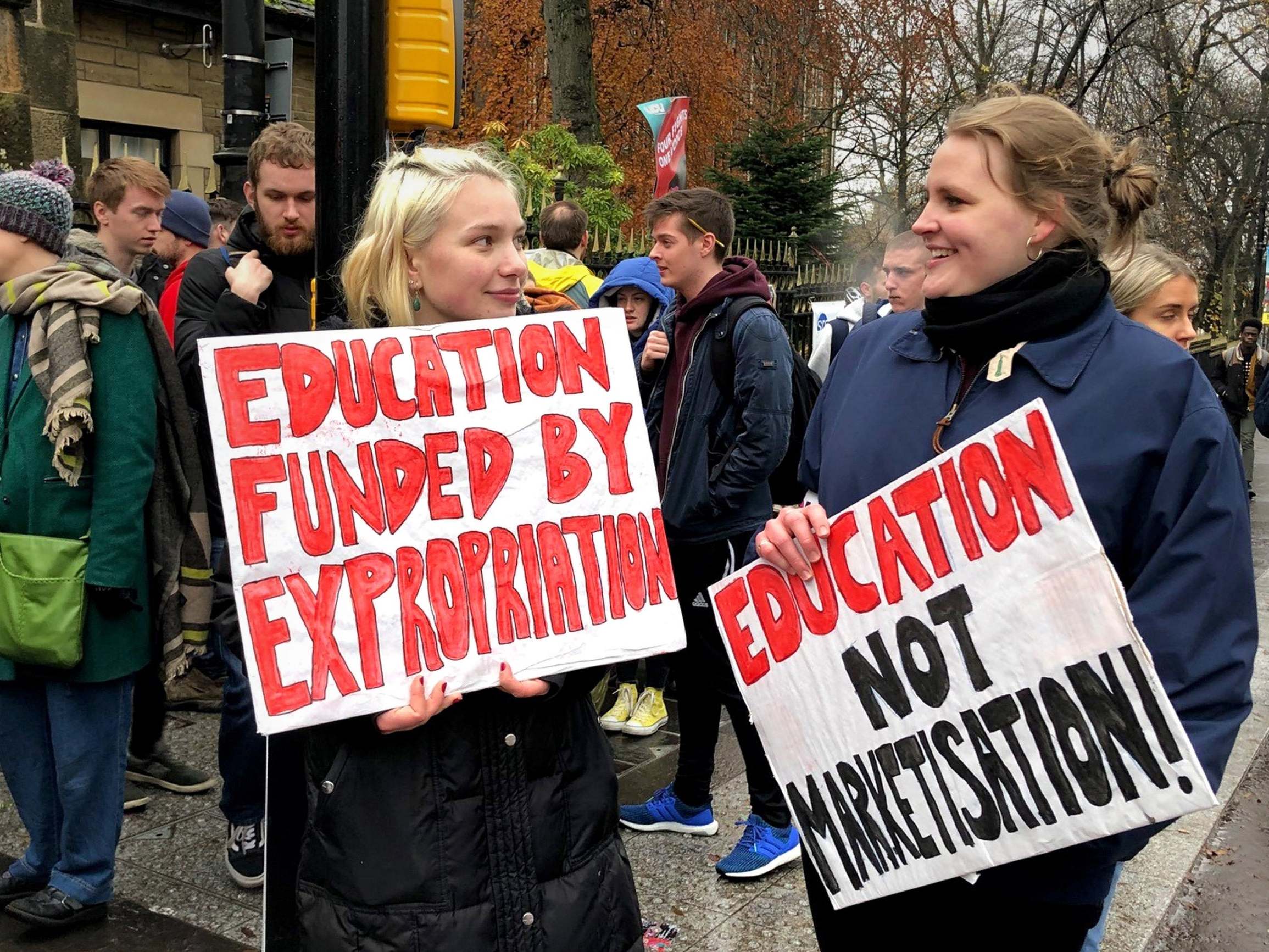University strikes: Students could face larger class sizes if staff get their demands, employers claim
Vice-chancellors refuse to make fresh offers to union ahead of walkouts this week

Your support helps us to tell the story
From reproductive rights to climate change to Big Tech, The Independent is on the ground when the story is developing. Whether it's investigating the financials of Elon Musk's pro-Trump PAC or producing our latest documentary, 'The A Word', which shines a light on the American women fighting for reproductive rights, we know how important it is to parse out the facts from the messaging.
At such a critical moment in US history, we need reporters on the ground. Your donation allows us to keep sending journalists to speak to both sides of the story.
The Independent is trusted by Americans across the entire political spectrum. And unlike many other quality news outlets, we choose not to lock Americans out of our reporting and analysis with paywalls. We believe quality journalism should be available to everyone, paid for by those who can afford it.
Your support makes all the difference.Students could face larger class sizes and fewer lecturers if staff get their demands over pensions, universities have claimed ahead of a fresh wave of walkouts this week.
Institutions are already “at the edge” of what they can afford and any increases to staff pay awards would place even greater financial pressures on struggling universities, vice-chancellors say.
University leaders have refused to make fresh offers to the University and College Union (UCU) over pay and pensions as members prepare to walk out at 74 universities from Thursday.
The 14-day strike action comes after tens of thousands of workers took part in eight days of walkouts at 60 universities at the end of last year, which saw lectures, tutorials and seminars cancelled.
Students, who have to pay up to £9,250 a year in tuition fees, have begun demanding compensation for the second wave of strikes as they say they will disrupt their exams and dissertations.
An analysis by The Independent has found that tens of thousands of students at more than a third of the universities facing walkouts have launched petitions calling for refunds for lost teaching time.
But Alistair Fitt, vice-chancellor of Oxford Brookes University and a member of the Employers Pensions Forum for Higher Education, has said student experience could be hit in the long-term if they back down.
Members’ contributions to the pensions scheme have increased to 9.6 per cent of salary, up from 8 per cent last April, and the UCU says employers should make up all of the contribution increases.
Professor Fitt said: “While it is true that some employers could pay more, most cannot. They would be facing a significant impact on the wider university environment, with funding potentially being diverted from teaching and research projects alike.
“It would also have a big impact on the student experience, such as support facilities and class sizes, and there could even be a future impact on jobs.”
Employers have refused to move from their offer of a minimum pay rise of 1.8 per cent for staff.
Mark Smith, chair of University and Colleges Employers Association, which represents universities in the pay and working conditions dispute, and vice-chancellor of Southampton University, said: “We know that many institutions are at edge – or they are beyond – what they can really afford.
“If you look at the number of institutions that have reported increasing deficits this year, it is a very difficult position for them.”
An analysis by The Independent, carried out days before the strikes, has found student-led petitions demanding compensation at 27 individual universities, while more than 15,000 students have signed a separate petition to Universities UK calling for refunds.
The UCU says university staff will pay around £40,000 more into their pension – but they will receive nearly £200,000 less in retirement following reforms to the pension scheme.
Increased contributions and other changes to the universities superannuation scheme mean many people are suffering substantial losses, the union has previously warned.
A spokesperson for the UCU said: “Universities have wasted a week chatting amongst themselves over one element of the Universities Superannuation Scheme dispute without reaching any clear conclusions or an offer. The reason staff are walking out and education is being disrupted from Thursday is because universities have failed to move the conversation forward and address the concerns of staff.
“UCU members are tired of hearing that there is no money for pay and pensions when the truth is that universities are choosing to spend less on staff. Instead of pleading poverty, universities need to prioritise investment in staff and deal with their concerns as a matter of urgency.”
Join our commenting forum
Join thought-provoking conversations, follow other Independent readers and see their replies
Comments